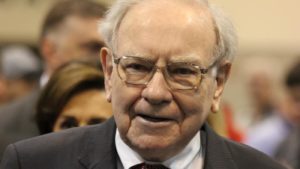Every month, we ask our freelance writers to share their top ideas for value stocks with investors — here’s what they said for August!
[Just beginning your investing journey? Check out our guide on how to start investing in the UK.]
Eurocell
What it does: Eurocell manufactures, distributes and recycles window, door, and roofline unplasticized polyvinyl chloride (uPVC) products.
By Kevin Godbold. The Eurocell (LSE: ECEL) business looks set to bounce back after a period of weaker earnings during 2023.
City analysts have pencilled in chunky double-digit percentage earnings advances for this year and next. That feels intuitively right to me because I’m bullish on the economy and believe many UK-facing cyclical companies will likely experience gathering positive trading momentum.
May’s trading update was cautious in tone. There’s no denying the firm’s vulnerability to the effects of general economic shocks and events. However, the directors pointed to the “strong” balance sheet and the success of prior cost-cutting measures taken. The business is well placed to benefit from recovery in its markets, they said.
Meanwhile, with the share price in the ballpark of 146p, the forward-looking earnings multiple for 2025 is just below eight, and the anticipated dividend yield is above 6%. To me, that looks like decent value, despite the ongoing risks.
Kevin Godbold does not own shares in Eurocell.
Lords Group Trading
What it does: Lords Group is a distributor of building, heating and plumbing goods throughout the UK.
By Jon Smith. Lords Group (LSE:LORD) shares have fallen by 29% over the past year. With the British stock close to 52-week lows, I think it’s a value play.
I get why the specialist distributor of building and DIY goods has struggled recently. The slump in the property market due to high mortgage rates has meant demand has slowed. Further, the cost-of-living crisis has caused some to put off renovation work.
Looking forward, I see an economic recovery alongside falling interest rates. This should act as a catalyst to push the share price higher over the coming year. Lords Group is well positioned to take advantage of this, especially due to the recent acquisitions which should provide economies of scale moving forward.
Sure, a risk is that it takes longer than anticipated for the housing market to recover. Yet as a long-term investor, I can afford to be patient.
Jon Smith does not own shares in Lords Group.
NWF
What it does: NWF is a UK-based distributor of fuels, food and feeds, primarily to an agriculturally focused customer base
By Christopher Ruane. Trading on a price-to-earnings (P/E) ratio of under seven, NWF (LSE: NWF) looks like good value to me.
Excluding lease liabilities, the company had a net cash position of £13m at its half-year point – around 15% of its current market capitalisation. So this is not a company with a low P/E ratio but an ugly balance sheet.
That said, pre-tax profit at the first half fell 35% year-on-year. Volumes in the feeds business fell, while higher volumes in fuel could not stop headline operating profits plummeting as margins weakened substantially. These factors are likely to affect full-year results too.
Still, with a proven business model, entrenched customer base and deep agricultural expertise, I think the company could do well over the long run.
The dividend yield of 4.5% looks tasty to me. I reckon a 35% fall in the share price over the past year means the company is now undervalued relative to its long-term cash generation potential.
Christopher Ruane owns shares in NWF.
Prudential
What it does: Prudential provides life and health insurance products across Asia and Africa.
By Ben McPoland. There still appears to be a lot of value on offer in the FTSE 100. Yet Prudential (LSE: PRU) shares seem particularly cheap to me, trading at just 9.1 times this year’s forecast earnings per share.
Others seem to agree, with multiple Prudential executives and directors scooping up shares throughout the summer. And as Wall Street legend Peter Lynch once said: “Insiders might sell their shares for any number of reasons, but they buy them for only one: they think the price will rise.”
Of course, that doesn’t mean it will. The share price is down 38% in one year and 53% over five. A lot of the bearishness seems to relate to China, one of the firm’s key growth markets. Consumers there are tightening belts and that could mean less insurance policies. That’s a risk.
Nevertheless, the company also sees great value in its own shares. In June, it announced a huge $2bn share buyback programme to run over the next two years.
Meanwhile, brokers forecast an attractive rise in earnings over this period. I think the stock looks great value under 700p.
Ben McPoland has no position in Prudential.
TP ICAP
What it does: TP ICAP provides broking, data and analytics services to clients in the financial services, energy and commodity sectors.
By Roland Head. Broker TP ICAP (LSE: TCAP) trades on a forecast price-to-earnings ratio of seven, with a 7% dividend yield. I think this could be too cheap.
The bear case is that TP ICAP’s broking unit – where brokers arrange complex trades for clients over the phone – is obsolete.
True, it’s not as big as it used to be. But broking generated £206m of operating profit for TP ICAP last year. I think it’s still relevant.
In any case, I’m interested in TP ICAP mainly for its highly rated data analytics business, Parameta Solutions.
Earlier this year, City estimates suggested the Parameta business could be worth £1.2bn. TP ICAP’s entire market cap is only £1.7bn.
Given that Parameta only contributed a quarter of TP ICAP’s operating profit last year, the group’s valuation seems askew to me.
The company is “continuing to explore options” to unlock the value this value for shareholders. I’m happy to keep holding.
Roland Head owns shares in TP ICAP.
This post was originally published on Motley Fool







